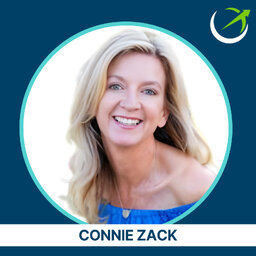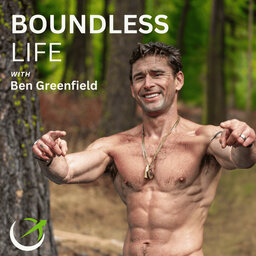Nicotine CRACKDOWN (One of My Guests Got ZYN Banned?!), Cancer-Fighting Fruits, Ozempic® Alternatives (Minus the Life-Altering Side Effects) & More — Solosode: 476
In today's Q&A session, I'll cover a wide range of topics, from the intricacies of caffeine consumption to the importance of sleep and nutrition in your daily life.
First, you'll get to explore the world of caffeine and discover how this widely consumed substance affects your body, from its potential cognitive benefits to its impact on cardiovascular health. I'll also discuss the optimal dosage for performance enhancement and explore the differences in caffeine metabolism between men and women.
Next, you'll discover the fascinating connection between sleep and the changing seasons. Recent studies suggest that humans may require more sleep during the dark, cold winter months, even in urban environments. I'll reveal the findings of a German study that found seasonal variations in REM sleep and deep sleep among city dwellers.
You'll get to uncover the role of fructose in your diet (and how it relates to cancer prevention) and find out my top fruit choices for fighting cancer, with a special emphasis on berries and their powerful antioxidant properties. I'll also touch on the controversial topic of high fructose corn syrup and how it differs from natural sources of fructose.
Plus, you'll get to explore the recent ban on ZYN nicotine pouches and how one of my podcast guests, Ben Katz, may have been affected by this recent ban.
You'll also learn about jetlag and how to combat its effects using light, temperature, protein-rich meals, and physical movement. I'll also discuss natural alternatives to the popular weight loss drug Ozempic and how they can help with hunger suppression.
Full Show Notes: BenGreenfieldLife.com/476
Episode Sponsors:
BON CHARGE: Visit boncharge.com/GREENFIELD and use coupon code GREENFIELD to save 15%.
Joovv: Get an exclusive discount on your first order of my favorite in-home light therapy devices. Click Joovv.com/ben and apply code BEN.
Beekeepers: Beekeeper’s Naturals is offering you an exclusive offer: Go to beekeepersnaturals.com/BEN or enter code BEN to get 20% off your order.
BIOptimizers Magnesium Breakthrough (FREE BOTTLE!): Try Magnesium Breakthrough for FREE when you go to magbreakthrough.com/benfree.
TUSHY: Get 10% off TUSHY with code BENGREENFIELD at checkout. That’s 10% off your first bidet order at hellotushy.com/BENGREENFIELD.
In 1 playlist(s)
Boundless Life
Free fitness, nutrition, biohacking, fat loss, anti-aging and cutting-edge health advice from BenGre…Social links
Follow podcast
Recent clips

Reset Your Body's Metabolism for FASTER Weight Loss & LESS Hunger In An Era Of Ultraprocessed Foods, With Dr. Jason Fung.
1:04:41

Does It Really Matter How HOT Your Sauna Gets, Should You Use Your Phone In A Sauna, What Kind of Sauna Ben Greenfield Uses & More With Connie Zack
58:26

Are We Just *Modern Zoo Animals*? The Ancestral Mismatch (Part 3)
08:04
 Boundless Life
Boundless Life